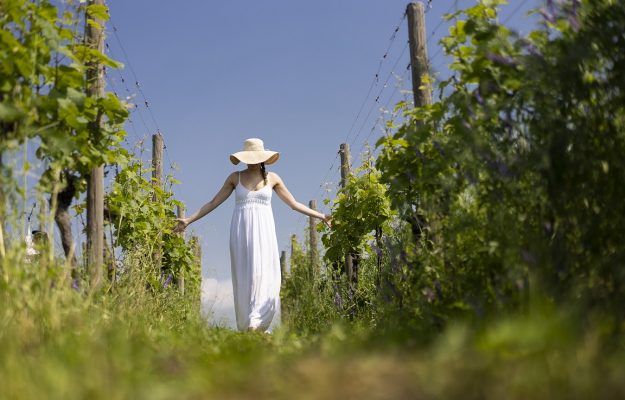A walk in the vineyard, accompanied by a more or less detailed explanation of the vines and terroir, followed by a visit to the cellar with tasting: an experience that now represents a standard for Italian wineries, but which is losing its “wow effect”, while wine lovers expect something more from an emotional point of view. More generally, the wine tourism sector must prepare to face new challenges: in the coming years the hot topics will be those linked to the lengthening of the season and the perception of healthy aspects. This was stated by Roberta Garibaldi, president of the Italian Food and Wine Tourism Association and one of the leading national experts in the sector, through a survey on wine tourism linked to the current and future challenges of the wine hospitality sector.
“Today Italian wine is a very important factor of attraction for Italian and foreign travelers and the level reached by wine tourism is such as to require a proactive approach aimed at stimulating the constant increase in quality of the offer - says Roberta Garibaldi - the sector is called to face new challenges that intertwine production and tourism: the need to enrich the proposals in an experiential and authentic sense, the risks deriving from climate change and the different consumption habits of the new generations, artificial intelligence. It is desirable to adopt an integrated approach and new models of territorial development capable of qualifying human resources and punctual and systemic supply”.
As regards the ongoing challenges, the first is linked to the need to differentiate experiences to extend the duration of the food and wine holiday and create targeted offer packages based on age groups and types of demand. Almost 60% of Italians consider the offer in the cellar to be too similar to each other. The data on experiences in terms of gaps, the most consistent values among the experiences dreamed of, but not yet realized for the tourist target in general, concern, in order: candlelit dinners in the vineyards, sunset tastings in the vineyards, wine-themed wellness treatments and bike tours in the cellars. However, considering the strict wine tourism target, it is the corporate team building activity in the cellars that dominates the ranking of unfinished experiences, underlining the interest in the intertwining of leisure and business tourism.
A second concerns authenticity. From the analysis it clearly emerges that it means first of all the desire for a local, territorial offer (62.3%). Then there is another aspect of authenticity, namely “seeing and experiencing landscapes that maintain their agricultural vocation”, and this aspect was indicated by 38.4%. The meeting with the local people is more significant for the very young, tending to decline as they age.
The experiences represent a booster for direct sales by wineries (also very important for the immediate collection effect and the margins guaranteed to companies): the data highlights that there is a significant difference in consumption orientation between younger and older tourists, with the former linked to white wines, sparkling wines and alternative wines, while among the boomers, reds and more traditional products prevail.
Among the future challenges, the main one is linked to the combination of wine and health: the analysis shows that there is no univocal position on the issue of the harmfulness of this drink. 47.9% of those interviewed agreed that wine consumption is harmful to individual health, 21.5% disagreed while the remaining 30.5% were neutral. The generational cross-section is interesting. It is above all young adults who agree (35-44: 50.3%, 45-54: 52.9%), on the contrary the younger ones tend not to share this opinion (36.8%).
Climate change will have a certain impact on the sector, which in the short term brings variations in terms of the seasonality of wine tourism, while in the long term it will have a more structural impact. Equally important will be the critical issue regarding the wine consumption of GenZ, who may see experiential wine tourism as a means of attraction and a driving force for the diffusion of wine culture. Finally, the role of wine tourism will be decisive as a means of development for the internal areas, with the need for investment in transport and training for the professional figures who work in the area.
Copyright © 2000/2026
Contatti: info@winenews.it
Seguici anche su Twitter: @WineNewsIt
Seguici anche su Facebook: @winenewsit
Questo articolo è tratto dall'archivio di WineNews - Tutti i diritti riservati - Copyright © 2000/2026







































































































































































































